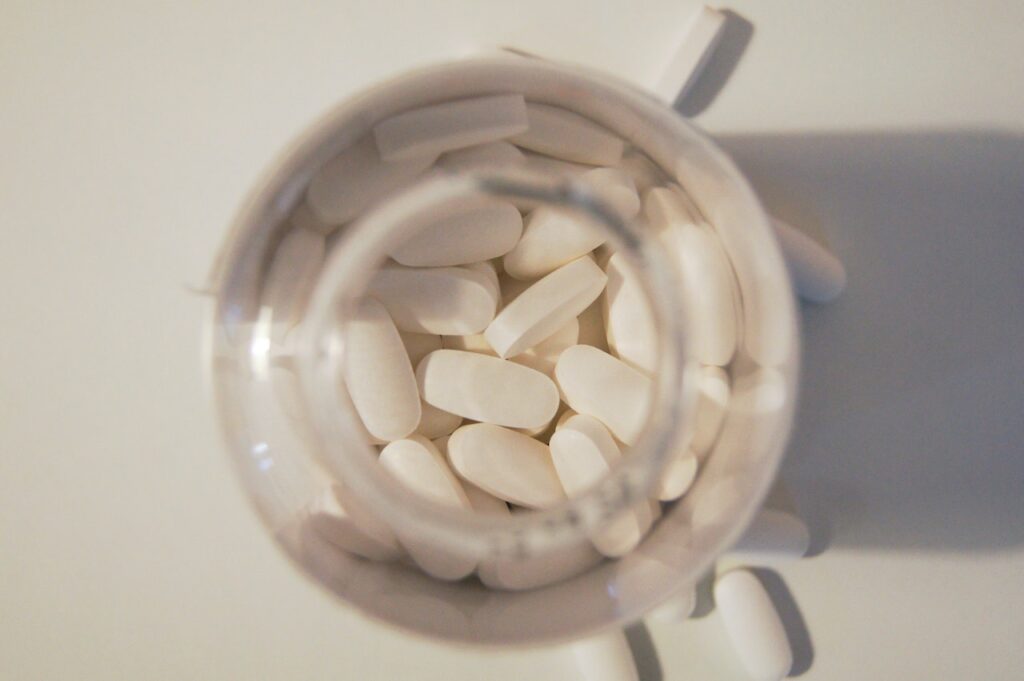Drug & Alcohol Rehab in Huddersfield & Near Huddersfield
Quick links for drug and alcohol rehab in Huddersfield
- Diagnosing Substance Use Disorder at Drug and Alcohol Rehab in Huddersfield
- Pros and Cons of Public Drug and Alcohol Rehab in Huddersfield
- Pros and Cons of Private Drug and Alcohol Rehab in Huddersfield
- Rehab For Alcohol Use Disorder (AUD) In Huddersfield
- Rehab For Cannabis in Huddersfield
- Rehab For Heroin in Huddersfield
- Rehab For Cocaine in Huddersfield
- Dual Diagnosis at Drug and Alcohol Rehab in Huddersfield
- Therapy Styles at a Drug and Alcohol Rehab in Huddersfield
- Relapse Prevention Planning at a Drug and Alcohol Rehab in Huddersfield
If you, your friends, or your family members are addicted to alcoholic drinks or drugs, then it might be difficult to find a suitable place to turn for help and support at drug and alcohol rehab in Huddersfield. Indeed, more than 1 million people in the country are suffering from drug abuse or alcohol addiction.
The situation is so serious that hundreds of thousands of people are in need of help for drug and alcohol rehab in Huddersfield and surrounding areas.
Diagnosing Substance Use Disorder at Drug and Alcohol Rehab in Huddersfield

People making notes together at a drug and alcohol rehab in Huddersfield
Although the symptoms of substance addiction are incredibly distressing to undergo or witness in a loved one, the good news is that they are treatable at rehab in Huddersfield.
Before entering a drug and alcohol rehab in Huddersfield, individuals must have their suspected SUD confirmed by a healthcare professional via a formal diagnosis.
After first admitting that there is a problem for both yourself and your family members, the first step towards getting diagnosed at rehab in Huddersfield is to approach a primary care provider, such as your doctor/GP.
Then, they will help you explore the possibility of enrolling at a drug and alcohol rehab in Huddersfield.
Using the AUDIT at drug and alcohol rehab in Huddersfield
Here at Rehab Recovery, we recommend that those interrogating their problematic drinking should start by taking the quick and easy Alcohol Use Disorder Identification Test (AUDIT).
Used for many years yet frequently updated by experts, AUDIT utilises data straight from WHO reports informing its 10-question assessment. Questions encompass important factors of Alcohol Use Disorder (AUD), including patterns of consumption, social consequences, and behavioural indicators.
Another guideline used by rehab clinicians in Huddersfield is the DSM-5 criteria: a psychiatric resource for diagnosing not just alcohol addiction but drug use disorders.
Alongside this, you may also find the CAGE Questionnaire and the ASAM (American Society of Addiction Medicine) Criteria to be useful to you at rehab in Huddersfield.
For more information on drug and alcohol rehab in Huddersfield, contact us today on 0800 088 66 86
Pros and Cons of Public Drug and Alcohol Rehab in Huddersfield

Couple sat together in therapy at a drug and alcohol rehab centre in Huddersfield
When starting their search into optimal addiction treatment pathways in the UK, most people will reach the obstacle of whether to choose private or public care.
In the public sector, NHS rehab programmes are the main form of treatment for almost all health conditions, providing therapy programmes, medication, and community programmes for a minimal cost.
The first advantage of publicly-funded rehab treatment to consider is the array of specialists and clinicians encountered by NHS patients. The NHS prides itself on delivering high-quality care at a low cost, with the treatment provided by many of the same consultants, doctors, and addiction psychiatrists working at private rehab clinics.
Another benefit of NHS rehab treatment is how programmes cater for patients that must continue working or attending school throughout their recovery.
While the exclusively outpatient nature of NHS programmes in Huddersfield might not benefit severe SUD victims, they are beneficial to those requiring a less intensive treatment style, and who are high-functioning in their day-to-day lives.
Many free and NHS-run rehab services in Huddersfield operate nearby, including:
1. Thriving Kirklees – CAMHS, Huddersfield
Address: Folly Hall Mills, St Thomas Road, Huddersfield, HD1 3LT
Telephone: 01484 343 783
Website: https://www.southwestyorkshire.nhs.uk/services/camhs-kirklees/
2. CHART Kirklees, Huddersfield
Address: 1st and 2nd Floor, 20 Manchester Road, Huddersfield, HD1 3HJ
Telephone: 01484 353 333
3. Alcohol Support Kirklees (ASK), Huddersfield
Address: 75 Dog Kennel Bank, Huddersfield, HD5 8JB
Telephone: 07435 567 401
Website: https://www.alcoholsupport.com/kirklees/
Despite this, the NHS is blighted by structural and financial problems that continue to threaten the well-being of patients. Opting for publicly-funded rehab care means long waiting times, a lack of treatment options, and slower admissions: all exacerbated by a lack of government funding.
Though the NHS provides free rehab treatment services in Huddersfield, they can be difficult to access due to long waiting times.
However, the main concern surrounding NHS rehab treatment is that it simply doesn’t have the funding or budget available to provide inpatient rehab care. This means that those opting for NHS care won’t receive 24/7 assistance or have their rehab treatment tailored to suit their needs.
You can also reach out to organisations such as Al-Anon, Alateen, Change Grow Live, Turning Point, We Are With You, National Association for Children of Alcoholics, the NHS Foundation Trust and Samaritans.
For more information on drug and alcohol rehab in Huddersfield, contact us today on 0800 088 66 86
Pros and Cons of Private Drug and Alcohol Rehab in Huddersfield

Bottle of medicine tablets at rehab
Many addicted individuals decide that waiting for NHS-funded rehab to become available isn’t viable, which leaves them with a choice.
Here at Rehab Recovery, our expert team will take your unique budget and circumstances for drug and alcohol rehab in Huddersfield.
The quality of care available in private rehab centres in Huddersfield comes down to the personalised nature of their treatment programmes.
As private rehab clinics in Huddersfield don’t have to worry about budget cuts and lack of funding, they can afford to give each patient a bespoke recovery service. This means designing psychological guidance and therapeutic methods to directly suit the patient’s needs.
While completing these bespoke plans, patients at a private rehab centre are provided with a private room where care is available around the clock. These residential rehab programmes allow clients to detox under close observation before continuing their recovery in a safe environment free from negative influences.
In addition, treatment at a private drug and alcohol rehab in Huddersfield is readily available as these centres aren’t subject to the same waiting lists as the NHS.
The almost instantly accessible nature of private care means that those needing rehab treatment in Huddersfield can access a bed within 48 hours of their application.
Nonetheless, the predominant issue facing those considering private care is the cost. Preliminary research often uncovers rehab clinics costing thousands per week of treatment: an unfeasible budget for most families and addicted individuals.
Luckily, both high-end and affordable residential rehab options are available at drug and alcohol rehab in Huddersfield.
Clients can choose a budget rehab clinic in Huddersfield where programmes from around £1,000 per week can be found.
Here, you will receive structured treatment tailored to your needs, comfortable accommodation, and nutritious meals.
Moreover, many funding options exist here in the UK, and most rehab clinics offer payment plans for clients with stricter budgets.
To explore your options and receive a list of recommended rehab centres based on your budget and needs, simply contact a member of the Rehab Recovery team for bespoke guidance.
If you have an alcohol addiction you will need to have an alcohol detox before you can begin any treatment. This means you will likely experience alcohol withdrawal symptoms.
For a physical dependence on a substance, such as alcohol, you will need a medically-assisted detox – this is underseen by a doctor or medical professional. You will also need one of these for heroin withdrawal for example.
After your detox, you may be prescribed Librium or Chlordiazepoxide which will help with the symptoms of withdrawal.
Long-term complications of substance abuse include:
- Hepatitis
- Seizures
- Wernicke Encephalopathy
- Alcohol Withdrawal Syndrome
For more information on drug and alcohol rehab in Huddersfield, contact us today on 0800 088 66 86
Rehab For Alcohol Use Disorder (AUD) In Huddersfield

Therapy group in progress at a drug and alcohol rehab clinic in Huddersfield
Alcohol addiction affects different people in different ways; whereas some people present obvious signs of self-destruction, others may continue going to work consumed by thoughts of where their next drink will come from.
Luckily, AUD can be successfully treated at a drug and alcohol rehab in Huddersfield, and the sooner recovery is initiated, the better for the individual concerned.
While recovery times depend on the needs of the AUD sufferer, inpatient rehab treatment programmes can run for anywhere between 30 days to 6 months or more
These programmes are specifically designed to help AUD victims overcome their condition and build a healthy life free from alcohol.
The first major step towards the end goal of long-term sobriety is detoxing from alcohol. Detox describes the natural process that occurs in the body as it removes alcohol and associated toxins.
However, due to the dangers of detoxing from alcohol, many individuals must undergo a medically supervised detox to manage their withdrawal symptoms.
Depending on how long they’ve been addicted to alcohol, many side effects are possible, ranging from vomiting and fatigue to seizures and hallucinations.
As such, inpatients at a drug and alcohol rehab in Huddersfield are closely observed by a team of medical staff.
As well as a bespoke taper schedule, individuals may be prescribed anticonvulsants to calm the nervous system, beta-blockers to reduce anxiety symptoms, or benzodiazepines to reduce the risk of seizures and Delerium Tremens (DT).
After the completion of their detox plan, patients will receive therapeutic support and counselling in a private, confidential setting surrounded by peers who understand what they’re going through.
Librium is usually used as the main medication for an alcohol detox.
Another medication used to stop drinking is Acamprosate (Campral®), which helps rebalance the chemicals in the brain that have been damaged by alcohol.
Alcoholism can also cause anxiety and depression, which means you might be able to get prescribed medications such as an antidepressant like nefazodone, desipramine, or imipramine.
The opioid antagonist Naltrexone can also be helpful in cutting alcohol out of your life as it decreases the alcohol you consume.
Based on their needs, a care team will help you decide which treatments you’d like to try, with options ranging from CBT and DBT to holistic and group therapies.
If you go on to have CBT therapy for alcohol addiction, a report showed the success rate to be 83.87%. Therapy after treatment is therefore highly recommended.
For more information on drug and alcohol rehab in Huddersfield, contact us today on 0800 088 66 86
Rehab For Cannabis in Huddersfield

Therapist and patient taking notes at a drug and alcohol rehab in Huddersfield
Excessively consuming cannabis, whether this is through smoking or ingesting edibles, is diagnosed as a Cannabis Use Disorder (CUD). This medical illness is characterised by the inability to stop using cannabis despite the consequences to the individual’s health and social life.
A study by Wayne Hall and Louisa Degenhardt identified the adverse side effects of regular use of cannabis during adolescence and into adulthood can include ‘a dependence syndrome, increased risk of motor vehicle crashes, impaired respiratory function, cardiovascular disease, and adverse effects of regular use on adolescent psychosocial development and mental health’.
To effectively tackle this condition and reclaim your well-being, most experts recommend a bespoke programme at a drug and alcohol rehab in Huddersfield. You’ll need to undergo a brief assessment wherein a professional prescribes either inpatient or outpatient rehab care for a duration of between 30 to 90 days.
Typically, those who have tried to quit cannabis previously without comfort or success are referred for a residential detox.
This is because withdrawing from the drug can be an uncomfortable, distressing experience, causing symptoms such as restlessness, insomnia, anxiety, paranoia, and intense mood swings.
Many of these symptoms can render the addicted individual unable to perform their daily responsibilities and may linger for a few weeks. It’s imperative to reduce your cannabis use by staying overnight in a safe, medically supported environment, especially in the most uncomfortable stages of withdrawal.
Once the withdrawal has stabilised or ceased completely, therapeutic measures should be taken to keep patients on the path towards recovery.
With consistent access to therapists and addiction specialists, patients are guided through a bespoke plan consisting of behavioural therapies, group sessions, and holistic treatments.
Such strategies are combined to create a foolproof and thoroughly personalised relapse prevention plan. Cognitive Behavioural Therapy, for instance, helps patients identify the cause of their addictive behaviours by recognising cognitive distortions and unhelpful belief systems.
Behavioural therapies are often used in conjunction with methods utilising motivational incentives, such as Contingency Management. This provides individuals with the opportunity to receive rewards and vouchers providing they demonstrate sobriety and commitment to the requirements of their rehab recovery programme.
For more information on drug and alcohol rehab in Huddersfield, contact us today on 0800 088 66 86
Rehab For Heroin in Huddersfield

Black and white photo of a therapy group hugging at a drug and alcohol rehab in Huddersfield
Derived from morphine, heroin is a potent opioid frequently abused for its euphoric effects and ability to provide escapism for traumatised individuals. Whether it’s injected or heated on foil and smoked, addictions to heroin can develop quickly and spiral into a condition known as Heroin Use Disorder (HUD).
Using heroin causes severe health problems, both in the short and long term, making it vital to seek help at a drug and alcohol rehab in Huddersfield.
Here, both pharmacological and behavioural treatment methods are adopted to restore a patient’s mental and physical health. Oftentimes, it’s recommended that individuals spend anywhere between 1 and 9 months recovering from this chronic illness.
Because heroin addiction is so challenging to overcome, patients must start their recovery process with a closely supervised detoxification.
This involves allowing the opioid to run its course in the patient’s body while carefully managing withdrawal symptoms through Medication Assisted Therapy (MAT).
Over a few weeks, or however long it takes for the patient to stabilise fully, medications are combined with a bespoke tapering strategy. Designed by a specialist to suit the individual, tapering off heroin is the process of slowly reducing the amount of heroin being used to avoid the worst withdrawal symptoms.
Alongside this, the most common method for easing withdrawal-related discomfort is implementing substitution therapy. Opioid receptor antagonists such as buprenorphine and naltrexone attach to the same brain receptors as heroin but without producing the same effects: reducing cravings and other symptoms.
It’s then necessary for patients at a drug and alcohol rehab in Huddersfield to treat the emotional and psychological facets of their heroin use disorder.
Once they’ve been weaned off heroin, they’ll regularly talk to therapists to discover more about themselves and their addiction while developing ways to cope with cravings.
Individual therapies such as DBT involve uncovering the reasons behind addictive behaviours and taking steps to overcome them. These methods effectively tackle both past trauma and self-destructive coping mechanisms.
Patients will typically combine one-to-one therapy sessions with group support workshops to optimise their chances of recovery.
Group therapy connects patients with peers who share similar experiences, allowing them to forge new relationships and guide one another through the stages of recovery.
For more information on drug and alcohol rehab in Huddersfield, contact us today on 0800 088 66 86
Rehab For Cocaine in Huddersfield

Mutual support group at a drug and alcohol rehab centre in Huddersfield
Either derived from the coca plant or prepared synthetically, cocaine acts as an effective local anaesthetic but is primarily used for recreational purposes.
Here in the UK, Cocaine Use Disorder is a valid concern for many communities and is a severe brain disease in need of professional care at a drug and alcohol rehab in Huddersfield.
Rather than treating cocaine addiction on an outpatient basis, the sufferer must be removed from triggering environments and enrolled in an inpatient rehab programme. Based on how severe their addiction is and whether co-occurring disorders are present, programmes can last for 30, 60, 90, or 120 days in some cases.
Before addressing psychological addiction through both traditional and alternative therapies, patients must undergo detox.
Cocaine detox is a highly specialised and personalised protocol aiming to reduce distressing symptoms. Individuals addicted to stimulant drugs have a higher risk of mental symptoms, including psychosis, hallucinations, anxiety, and agitation.
While allowing cocaine to clear from the system, patients will have the full support of psychiatrists and medical professionals who are available around the clock. Placed in a serene, holistically designed environment, individuals can gradually taper their cocaine dosage with the help of certain medications if required.
Medication regimens for cocaine use disorder focus on reducing cravings and reducing the risk of relapse. Baclofen is regularly prescribed to restore GABA neurotransmitters in the brain, alongside similar neurotransmitter agents such as Tiagabine and Topiramate.
However, MAT isn’t the be-all and end-all of cocaine detox, with many individuals requiring additional support for nutritional and emotional imbalances.
Preliminary counselling will be available to patients during detox, alongside an array of nutrition-rich meals and health supplements.
When the time comes to begin formal treatment, patients are offered an array of tailored therapeutic measures, many of which are behavioural therapies. To develop skills that support long-term sobriety and help patients cope with their relapse triggers, methods such as CBT and DBT are efficacious.
Further mental support is provided to long-term patients in the form of Motivational Interviewing and group support sessions. While the former helps to enhance intrinsic motivation and prime the brain for future recovery, the latter helps patients regain important social skills.
Other types of addiction treated at rehab include:
- Behavioural Addictions (Gambling Addiction)
- Binge Drinking
- Opioid Use Disorder (Buprenorphine)
- Cannabis Use Disorder
- Ketamine Addiction
- Cocaine Dependence
- Codependency
- Crack Cocaine Addiction
For more information on drug and alcohol rehab in Huddersfield, contact us today on 0800 088 66 86
Dual Diagnosis at Drug and Alcohol Rehab in Huddersfield

Woman holding her head at a drug and alcohol rehab in Huddersfield
The presence of a mental health issue and a substance use disorder is known in the addiction treatment realm as Comorbidity or Co-occurring disorders.
While patients with a dual diagnosis are more prone to relapse and require integrative treatment, recovery is possible at a reputable drug and alcohol rehab in Huddersfield.
The changes that take place in the brain after frequent substance abuse occurs in the same areas that are impacted by anxiety, depression, and bipolar disorder. Other disorders include schizophrenia, post traumatic stress disorder, obsessive compulsive disorder, and eating disorders.
As such, psychiatric conditions are often tightly interwoven with substance addiction, making it vital to treat both disorders at the same time through bespoke, integrative treatment.
By undergoing an assessment at a drug and alcohol rehab in Huddersfield, patients can receive an accurate screening of their dual diagnosis, conducted by clinicians who are specially trained. They’ll be able to accurately detect both conditions and build a picture of how they interact with each other.
For instance, mental conditions can lead to drug or alcohol addiction when individuals turn to substance use to manage the pain of their psychiatric illness. The reverse is also true, with drug use causing many people to experience symptoms of mental distress. One common example of this is drug-induced psychosis.
Maintaining sobriety is often more difficult for victims of co-occurring disorders, which is why personalised therapeutic planning is crucial.
Restructuring negative thought patterns and learning how to manage intense emotions is at the fore of comorbidity treatment: making methods like CBT and ACT effective in most cases.
Those suffering from co-occurring disorders also benefit from a range of alternative therapies at their chosen residential rehab centre. Activities like yoga and meditation can help alleviate emotional distress and control substance cravings to create an integrative treatment option.
You can also get free mental health support from organisations like Mind UK, Young Minds, Rethink Mental Illness, Samaritans and Papyrus.
For more information on drug and alcohol rehab in Huddersfield, contact us today on 0800 088 66 86
Therapy Styles at a Drug and Alcohol Rehab in Huddersfield

Therapist speaking with a patient at a drug and alcohol rehab in Huddersfield
Alongside MAT, psychotherapies are one of the most important tools in helping patients recover at a drug and alcohol rehab in Huddersfield.
From helping people deal with stressors in a healthy way to rebuilding self-confidence and motivation, each style of therapy is unique, but with the same aim to instil positive change.
What’s more, patients will likely encounter several types of therapy throughout their personalised rehab programme.
They’ll have the chance to incorporate a range of innovative methods to improve their long-term emotional, psychological, and physical health. When you get to rehab you will undergo a psychiatric assessment in order to receive the correct treatment.
1. Cognitive Behavioural Therapy (CBT)
Most commonly used to treat anxiety disorders and depression, CBT is also an effective treatment modality for substance addiction. At a drug and alcohol rehab in Huddersfield, behavioural therapies are used to help patients manage their problems by changing the way they think, feel, and behave in various situations.
While some counsellors will use an exclusively CBT-based approach, others may incorporate approaches from other therapeutic models such as MET. Regardless of your therapist’s unique approach, each CBT session will be conducted in a one-to-one environment to maximise personalisation and patient confidentiality.
This way, patients can delve into internal struggles or experiences that they’d be uncomfortable sharing in group therapy settings.
Lasting between 1-2 hours, individual therapy workshops allow subjects to explore why certain sensations, thoughts, and feelings occur in specific situations.
In time, this exploration helps people interrogate long-standing assumptions about themselves and the wider world that may have been getting in the way of their sobriety. Only by achieving this can patients make positive changes to their lives, including how they cope with relapse triggers.
A variety of techniques make up the CBT approach, including keeping journals and thought records, breathing and relaxation, and behavioural activation. This particular activity looks at how we engage in past-times and social situations, and how we can optimise our enjoyment of them. This is key to enjoying life post-rehab and avoiding potential relapse.
2. Acceptance and Commitment Therapy (ACT)
This more recently developed form of therapy aims to help patients reach an enhanced state of self-awareness through mindfulness and cognitive defusion. At the heart of Acceptance and Commitment Therapy is the focus on gaining control over experiential avoidance: the desire to suppress unwanted internal experiences.
At a drug and alcohol rehab in Huddersfield, ACT participants work to regain psychological flexibility as part of their addiction recovery. This means building mental resilience, encouraging proactivity instead of reactivity, and promoting healthy, sobriety-sustaining behaviours.
During sessions, an ACT-informed therapist aids patients in facing the reality of their condition without overly concentrating on them to the point of stunted personal growth.
Especially important in this process is exploring one’s values and exploring potential ways that we can change to live in alignment with these morals.
To help establish meaningful change, six core principles are employed in the ACT: expansion/acceptance, cognitive defusion, values clarification, connection, the observing self, and action. During cognitive defusion exercises, patients learn to perceive negative thoughts, emotions and images as fleeting experiences that we can move on from.
3. Contingency Management (CM)
 `
`
Woman having a serious conversation with a therapist at a drug and alcohol rehab in Huddersfield
Modifying behaviour through controlling or manipulating the consequences has long been used as a form of treatment for addiction. Over the years, the methodology has been condensed into an effective behavioural therapy known as Contingency Management, also called “motivational incentives” or “the prize method”.
As a sequence of behavioural interventions, CM at a drug and alcohol rehab in Huddersfield provides rewards quickly for favourable behaviours, such as negative toxicology or treatment milestones.
Receiving a reward for meeting treatment goals or continuing sobriety can increase the motivation levels and self-confidence of patients: increasing engagement in other forms of therapy such as CBT.
The type of incentives given will depend on the rehab clinic and its unique treatment philosophy. For example, some centres may implement negative consequences if an individual is unable to meet the desired goal, whereas others will include positive incentives only. Some clinics may also incorporate bonuses: such that with the accumulation of negative toxicology tests over time, patients can earn greater rewards.
In most types of CM programmes, participants will receive cash-based rewards, vouchers, or tokens allowing them to enter an exchange system. They’ll be able to exchange vouchers for items or activities that align with healthier ways of living, such as gym memberships or movie passes.
4. Dialectical Behavioural Therapy (DBT)
The term “dialectical” describes the process of understanding how two opposing ideas can both be true, and it’s this philosophy that forms the DBT approach. In its unique methodology, this form of behavioural therapy encourages patients to accept two contradictory ideas: acceptance and change.
Developed in the 1980s as a counterpart to CBT, DBT practices took an emotion-centric spin on traditional behavioural therapy practices. While originally meant to treat those with borderline personality disorders or thoughts of taking their own lives, DBT is now more widely used to treat not only substance addiction but conditions like PTSD and anxiety.
During workshops, subjects will mindfully work through the process of self-acceptance while cultivating the motivation to make positive behavioural changes.
To help them do this, DBT therapists use several counselling techniques, including assignment-based therapy, skills training, individual therapy, and mindfulness coaching.
Each DBT technique is designed to reflect each of its four modules: distress tolerance, emotional regulation, mindfulness, and interpersonal effectiveness. The latter module involves learning how to use healthy strategies for resolving arguments or conflicts in relationships with friends and family members.
It’s also common for DBT to be employed in both group skill workshops and individual sessions at a drug and alcohol rehab in Huddersfield. While group-based formats focus on activities such as journaling and worksheets, individual DBT teaches someone how to manage impulsivity in their SUD, tackle a dual diagnosis, or heal from past trauma.
5. Family Therapy
Struggling with SUD can have complicated, devastating long-term effects both on the direct sufferer and the loved ones trying to help them. Many family members and friends find it hard to stand by their addicted loved one and cope with their addictive behaviours: leading to conflict and damage to these important relationships.
With this in mind, healing from substance use disorder should be a family affair rather than exclusively focusing on the patient at a drug and alcohol rehab in Huddersfield.
Participating in Family Therapy under the guidance of an experienced counsellor allows participants to learn about the relationship patterns that can lead to substance abuse.
By educating both family members and the addicted individual on the behavioural and emotional components of SUD, therapists can help participants understand one another moving forward.
During sessions, concerned family members can learn how to successfully help their loved one overcome addiction, and how to avoid enabling unhelpful behaviours.
However, there’s more to Family therapy for addiction than educating members on substance use disorders. Therapeutic methods will teach participants the importance of self-care, and posit ways of regaining trust after potential years of conflict.
6. Holistic Therapy (HT)

Outdoor therapy in progress at a drug and alcohol rehab clinic in Huddersfield
While non-medical methods of addiction treatment were once frowned upon, alternative therapies have been recognised for their benefits: appearing at many a drug and alcohol rehab in Huddersfield. Rather than using medication to treat the side effects of SUD, holistic therapists treat emotional and nutritional imbalances as well as physical and mental symptoms.
This aim to treat each individual as a whole, rather than detach symptoms from lifestyle, has a range of benefits for the mind, body, and spirit. Holistic Therapies can help patients treat cravings, increase self-confidence, and improve fitness, all while promoting focus and concentration.
Rather than offering one type of therapy or activity, HT programmes offer a wide range of treatments with their aim to connect the mind, body and soul. This means integrating elements of mindfulness, relaxation, creativity, and positive activities that can be used in everyday life.
HT approaches often tackle more than one kind of ailment or imbalance. For example, meditation focuses on relaxing both the mind and body in a way that reduces stress, anxiety and pain: even promoting better sleep.
Holistic therapies may also include biofeedback, daily exercise, pilates, yoga, acupuncture, massage therapy, or more creative pursuits such as writing, art, and music. Within the daily exercise bracket of HT, activities can include hiking, horse riding, rock climbing, and other pursuits to relieve stress, strengthen the body, and build a routine.
7. 12-Step Facilitation Therapy
The purpose of 12-Step Facilitation Therapy is to help addicted individuals attend and get the most out of their local 12-step programme. These programmes are integral to groups such as Alcoholics Anonymous, Narcotics Anonymous, and Cocaine Anonymous, providing a framework for patients to follow to shift their lives positively post-rehab. These are based on the concept of a higher power.
As such, much of the work completed by participants in 12 Step Programmes revolves around accepting themselves for whom they are while working to live a beer life in their newfound abstinence. Some of the most commonly utilised 12 steps include the following:
- Admitting our wrongs to others and taking responsibility for our past actions
- Listing the people we have harmed due to our addiction to alcohol and/or drugs
- Taking a moral inventory of ourselves with a view towards positive change
- Admitting our powerlessness over the substance to which we were once addicted
Despite the success of 12 Step Programmes in fellowship groups all over the UK (and the world), many potential participants have questions or reservations about the process. For example, many people assume that the 12 steps rely heavily on participants being religious or converting to Christianity.
While this may have once been the case, modern programmes are often adapted to be A-religious and A-political. During 12-Step Facilitation Therapy, therapists will help cultivate active engagement in therapeutic communities by talking patients through the benefits and answering any questions they may have.
8. Motivational Enhancement Therapy
When someone suffering from addiction enters a drug and alcohol rehab in Huddersfield, they’ll likely experience highs and lows in their motivation levels. Working through periods of doubt, especially as your system adjusts to a life of sobriety, is a natural part of recovery and is nothing to be ashamed of.
Rather than work through periods of low motivation alone, patients will have the option to receive Motivational Enhancement Therapy (MET): a counselling technique used to promote healthy motivation levels and inspire change. Unlike long-term therapies such as CBT, MET is completed over just a few short sessions to cultivate a burst of motivation in patients.
While its counterpart Motivational Interviewing (MI) represents a more general therapeutic strategy, MET emphasises a specific approach involving personalised assessments, feedback, and planning.
Within these 3 sections, a variety of bespoke methods and philosophies are utilised to suit the treatment needs of the individual.
In the first MET session at a drug and alcohol rehab in Huddersfield, the focus is on evaluating the patient’s internal motivation and allowing the therapist time to get to know the individual. Once the groundwork has been established, successive workshops focus on strengthening this motivation and planning for the future.
Throughout sessions, MET utilises the traditional MI counselling approach of empathetic listening, summarising, and showing acceptance. At the same time, MET therapists use clinical data to back up the suggestions they make to the patient as a way of explaining why they should work to remain sober.
Other types of therapy and services available at rehab include:
- Art Therapy
- Contingency Management
- Brief Intervention
- Drama Therapy
- Equine Therapy
- Eye Movement Desensitization and Reprocessing
- Group Psychotherapy
- Motivational Interviewing/Motivational Therapy
- Music Therapy
- Person-Centered Care
- Psychiatric Treatment
- Rational Emotive Behaviour Therapy
- Talking Therapies
For more information on drug and alcohol rehab in Huddersfield, contact us today on 0800 088 66 86
Relapse Prevention Planning at a Drug and Alcohol Rehab in Huddersfield

Therapy group speaking together at a drug and alcohol rehab in Huddersfield
While attending a drug and alcohol rehab in Huddersfield helps patients identify the underlying causes of their addiction, relapse will remain a threat without proper planning. As such, rehab treatment programmes include core elements of relapse prevention planning, tailored to suit the individual and the unique triggers they’re likely to encounter in the outside world. This is also called aftercare.
As part of your personalised plan, you’ll learn not only about the stages of relapse (emotional, mental, physical) but how to identify your triggers.
Specific settings, situations, and people can drive individuals in recovery back into drinking or using drugs again: making it imperative to recognise and work on your vulnerabilities.
A popular way to achieve this is through undertaking CBT methods in your chosen rehab clinic. Behavioural therapies can help you learn how to cope with both internal and external stressors: improving your neurobiological circuit over time.
Individuals at a drug and alcohol rehab in Huddersfield will also learn various relapse prevention models. Famed for being simple yet effective, one such example is the HALT acronym: which stands for Hungry, Angry, Lonely, and Tired.
By remembering this easy acronym outside of rehab, those in recovery can recognise and manage relapse warning signs before they take hold.
By assessing their well-being, individuals are more likely to create a meaningful self-care routine: following healthy habits such as getting enough sleep and eating well to make them feel more in control of their lives.
You can also use the help of mutual support groups such as Alcoholics Anonymous or SMART Recovery to form a framework for support that will help you to avoid relapse.
It’s important to remember that it might take between 6 months to 5 years or more to reach abstinence and overcome your addiction completely, but it is worth it for a lifetime in recovery.
It should not be seen as a sign of weakness if you relapse as recovery takes time. Relapsing is common and occurs between 40% to 60% of adults trying to recover.
For more information on drug and alcohol rehab in Huddersfield, contact us today on 0800 088 66 86
Contact Us for Drug & Alcohol Rehab in Huddersfield

Two people talking at a drug and alcohol rehab in Huddersfield
So, if you are looking for drug and alcohol rehab in Huddersfield or surrounding areas, contact us now to get a free consultation. We accept both statutory as well as private paying patients.
In addition, you may be able to pay for your treatments through a medical insurance policy. Our centre can negotiate with your insurance company on your behalf.
Every rehab in England and Wales that we work with is vetted by the Care Quality Commission. Most rehabs also follow guidelines set by the National Institute for Health and Care Excellence.
Get help for addiction across West Yorkshire, including in Leeds, Bradford, Wakefield, Halifax, Batley, Dewsbury, Keighley, Castleford, Brighouse, Pudsey, Morely, Pontefract, Shipley, Bingley, Holmfirth, Normanton, Ossett, Yeadon, Rothwell, Mirfield, Horsforth, Liversedge, Baildon, Elland, Garforth and many more.
Contact our expert team today on 0800 088 66 86 and start your recovery journey


